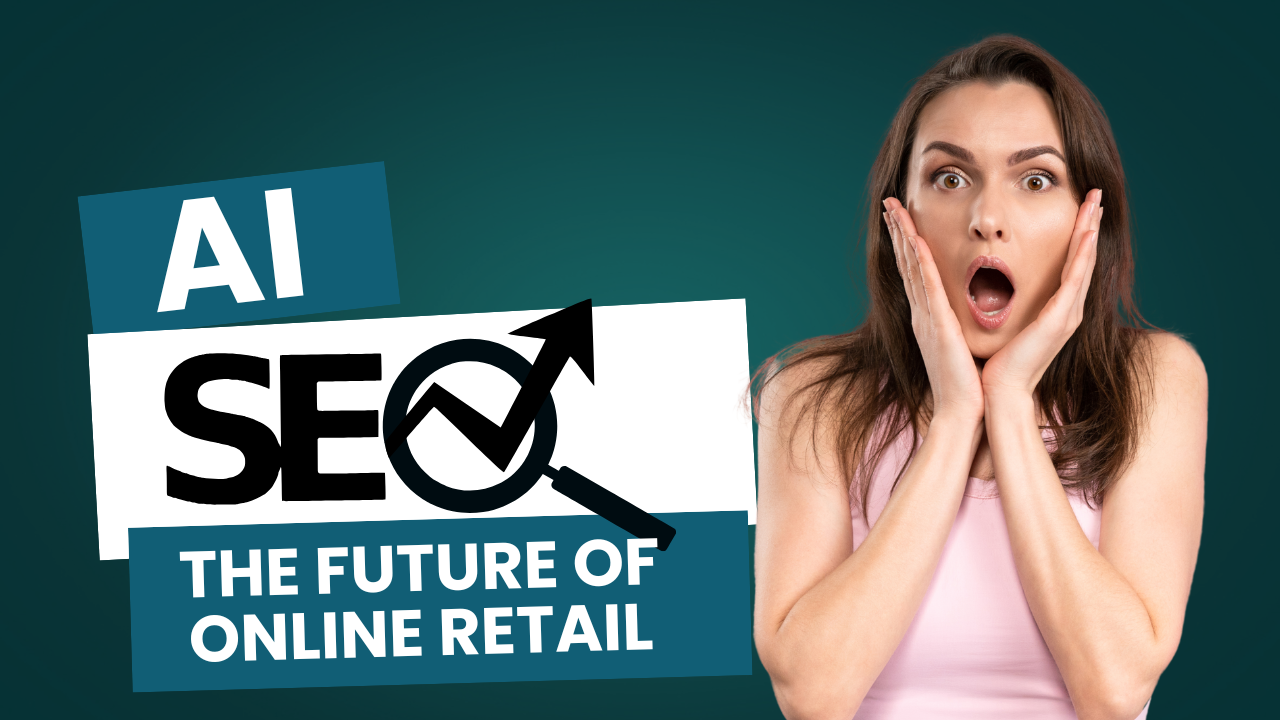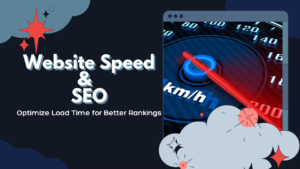
The e-commerce landscape is fiercely competitive, demanding that online businesses constantly seek innovative strategies to enhance visibility, attract organic traffic, and ultimately drive sales. In this dynamic environment, Artificial Intelligence (AI) has emerged as a transformative force, revolutionizing various aspects of online retail, including Search Engine Optimization (SEO). AI SEO for e-commerce is no longer a futuristic concept; it’s a present-day necessity for businesses aiming to thrive in the digital marketplace.
Introduction
This article delves into the intricacies of AI SEO for e-commerce, exploring its benefits, implementation strategies, essential tools, and the exciting future it holds for online businesses.
Understanding AI SEO
AI SEO refers to the application of artificial intelligence technologies, such as machine learning (ML), natural language processing (NLP), and large language models (LLMs), to improve a website’s ranking on search engine results pages (SERPs). For e-commerce businesses, this means leveraging AI to optimize their online stores and product listings to appear higher in search results when potential customers search for relevant products.
Traditional SEO often involves manual processes like keyword research, content creation, and link building, which can be time-consuming and resource-intensive. AI offers the capability to automate and enhance these tasks, providing data-driven insights and more efficient strategies.
Benefits of AI in E-commerce SEO
Integrating AI into e-commerce SEO strategies offers a multitude of advantages:
- Enhanced Keyword Research: AI-powered tools can analyze vast amounts of data to identify relevant keywords, including long-tail keywords and emerging trends, with greater accuracy and speed than manual methods. They can also understand user intent behind search queries, helping businesses target the right audience.
- Automated Content Optimization: AI can assist in creating and optimizing product descriptions, meta tags, and other website content for SEO. Generative AI can even produce initial drafts of blog posts and articles, saving time and effort. These tools can also analyze top-ranking content to suggest improvements for better relevance and readability.
- Improved Technical SEO: AI algorithms can crawl and analyze e-commerce websites to identify technical SEO issues such as broken links, crawl errors, duplicate content, and slow page loading speeds. They can provide recommendations for fixing these issues, ensuring optimal site health for search engines.
- Personalized User Experience: AI can analyze user behavior, past purchases, and preferences to personalize search results and product recommendations within an e-commerce site. This not only improves user experience but also increases the likelihood of conversions.
- Smarter Link Building: AI can help identify potential link-building opportunities by analyzing website authority and relevance. It can also assist in crafting compelling outreach messages. While backlinks may be less prioritized in the age of AI search, mentions and citations on relevant editorial sites and product discussions can be crucial for establishing authority.
- Competitive Analysis: AI tools can monitor competitors’ strategies, including keyword usage, content performance, and pricing changes, providing valuable insights for staying ahead.
- Predictive Analytics: AI can analyze historical data and market trends to predict future search trends and consumer behavior, allowing businesses to proactively adapt their SEO strategies.
- Efficient Performance Monitoring and Reporting: AI-powered tools can provide real-time insights into SEO performance, identifying what’s working and what’s not, and automate the generation of comprehensive reports.
- Optimized for AI Search Engines: As AI-powered search engines and large language models like ChatGPT become more prevalent, optimizing content to be easily understood and cited by these systems is crucial. This involves incorporating expert quotes, media mentions, and customer reviews directly on product pages, using structured comparison tables, and employing buyer-intent language.
- Localized SEO: AI can assist in creating region-specific content and optimizing for local search queries, including translating and localizing content for different geographies.
Implementing AI SEO for E-commerce
Implementing AI SEO effectively requires a strategic approach:
- Identify Areas for AI Integration: Determine which aspects of your current SEO strategy can benefit most from AI automation and insights. This could include keyword research, content creation, technical audits, or performance analysis.
- Select the Right AI Tools: Choose AI-powered SEO tools that align with your specific needs and budget. Various tools offer different functionalities, from content optimization to technical SEO analysis.
- Train Your Team: Ensure your SEO team understands how to use the chosen AI tools effectively and how to interpret the generated insights. AI should augment human expertise, not replace it entirely.
- Focus on Data Quality: AI algorithms rely on data. Ensure that your website data is accurate and well-structured for AI tools to provide meaningful insights.
- Experiment and Iterate: AI SEO is an evolving field. Continuously experiment with different AI tools and strategies, monitor their impact, and iterate based on the results.
- Prioritize User Experience: While optimizing for AI and search engines is crucial, always prioritize providing a high-quality user experience. AI should help you achieve this by understanding user intent and delivering relevant content.
- Optimize for Entity Recognition: Focus on building an entity around your e-commerce store and products by using consistent and detailed information. This helps AI search engines understand the context and relevance of your offerings.
- Adapt to Natural Language Processing (NLP): Optimize content to align with natural and conversational language patterns, as AI search engines increasingly rely on NLP to understand user queries.
- Implement Structured Data Markup: Use schema markup to provide AI crawlers with more information about your products, improving their visibility in AI-powered search results. Include details like product name, description, price, availability, brand, and reviews.
- Optimize for Voice Search: As voice search becomes more popular on AI platforms, ensure your content is optimized for conversational queries.
Essential AI Tools for E-commerce SEO
A growing number of AI-powered tools are available to assist with e-commerce SEO:
- Content Generation and Optimization: ChatGPT, Jasper, Surfer SEO, Frase, MarketMuse, Copy.ai, Ink.
- Keyword Research: Semrush, Ahrefs, Moz, ChatGPT.
- Technical SEO Audits: Screaming Frog (with AI integration), Alli AI.
- Data Analysis and Insights: Google Analytics (with AI-powered insights), Semrush, Ahrefs.
- Product Feed Optimization: DataFeedWatch.
- Personalized Recommendations: Wisepops, Zoovu, ViSenze.
- Chatbots and Customer Service: Boost.ai, HubSpot Chatbot Builder, Tidio AI, LivePerson.
- Pricing Optimization: Prisync.
- Image Optimization: AI-powered image compressors and alt-text generators (integrated into some content tools).
The Future of AI in E-commerce SEO
The future of e-commerce SEO is inextricably linked with the advancements in AI. We can expect to see even more sophisticated AI-powered tools that offer:
- Hyper-Personalization: AI will enable even more granular personalization of search results, product recommendations, and content based on individual user profiles and real-time behavior.
- Enhanced Visual Search: AI-powered visual search will become more prevalent, allowing users to find products based on images. E-commerce businesses will need to optimize their product images accordingly.
- Seamless Integration with AI Assistants: Online stores will need to optimize their content and data to be easily accessible and understandable by AI assistants like ChatGPT and other large language models, as users increasingly rely on these for product discovery and information.
- Predictive SEO: AI will become even better at predicting search trends and algorithm updates, allowing businesses to proactively adjust their strategies.
- Automated SEO Workflows: More SEO tasks, including content creation, technical audits, and link building, will be automated through AI, freeing up human experts to focus on strategic planning and creative initiatives.
- Emphasis on E-E-A-T (Experience, Expertise, Authoritativeness, and Trustworthiness): AI algorithms will likely become even more sophisticated in evaluating the E-E-A-T signals of e-commerce websites and product content. Businesses will need to focus on building trust and demonstrating expertise in their niche.
- Context-Aware Advertising: AI will enable more contextually relevant and personalized advertising campaigns based on user behavior and search intent.
Conclusion
AI SEO for e-commerce is no longer an option but a fundamental requirement for online businesses looking to achieve sustainable growth and maintain a competitive edge. By embracing the power of artificial intelligence, e-commerce stores can optimize their online presence, attract more qualified traffic, enhance user experience, and ultimately drive more sales. As AI continues to evolve, staying informed about the latest advancements and integrating them strategically into your SEO efforts will be crucial for success in the ever-evolving digital marketplace. The future of e-commerce SEO is intelligent, automated, and deeply personalized, offering immense opportunities for those who are ready to embrace the change.





